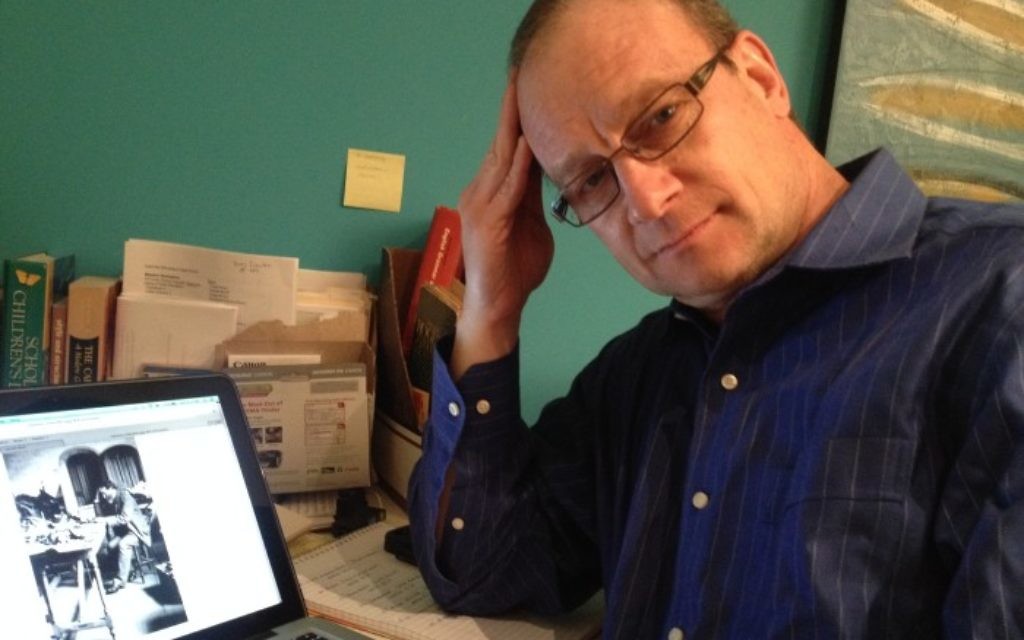Not Every Weed Can be Ignored
As much as American Jews would like to sit unafraid beneath their vines and fig trees, anti-Semitism demands constant vigilance and cannot be allowed to fester.
In the front yard and back, weeds have gained the upper hand against the grass. With each passing year, I become more of a bystander, not taking a side in this contest. The lawnmower likewise shows no favoritism.
I prefer to take a more active role in the garden behind the house. The planting and caring for the crops reflects, in its own way, the view in Judaism and other religions, of spring as a time of beginnings, of births or rebirths, of possibilities and hopes renewed.
Last year’s harvest was the best in the 20 or so years since we allowed a young horticulturist to practice his trade by installing a variety of fruit vines and building a garden box.
Get The AJT Newsletter by email and never miss our top stories Free Sign Up
One of summer’s treats will be eating blackberries picked from the canes that line a side fence. Meanwhile, bees swarm the blueberry bushes and the adjoining raspberry vines.
I worry that the raspberries are being shaded by our kiwi plant, a monstrosity that I have likened to the 1962 British science fiction horror film “The Day of the Triffids.” The kiwi has taken control of a basketball backboard and I am convinced that, if they were not cut back annually, the vines would extend across the roof to the front of the house.
The collards and broccoli planted during the winter have grown to ridiculous heights. Around them in the box are recently planted seedlings of tomatoes, peppers, basils, lettuces and onions. Sunflower seeds lie just beneath the dirt along the fence at the back of the driveway.
Warmer temperatures and longer daylight hours are enticing many of us out of what has been, to varying degrees, a year or more of relative isolation, prudently following the advice of public health experts during the COVID-19 pandemic.
The good news that an increasing number of Americans have been vaccinated is tempered by awareness that lives continue to be lost, albeit at a slower rate; that hospitals are treating fewer elderly patients, but more younger people; and that an unfortunate number of people suffer “long haul” effects months after being stricken and treated. Amid the vaccine-related enthusiasm, public health experts caution against complacency, but their words fall on the deaf ears of those who dismiss or downplay the continuing threat, and of elected leaders who, weary of balancing the health of their citizens and their economies, are eager to throw open the gates.
Alas, there is no vaccine to ward off viral strains of hate. No number of sermons and speeches, rallies and marches, or yard signs and editorials will stop some people from hating others for no reason other than their religious beliefs, skin color, ethnicity, who they love, or how they identify.
Which brings me back to my front yard, where the fig tree a friend gave me a few years ago is growing nicely in a peninsula of pine straw. That tree brings to mind this excerpt from President George Washington’s letter in August 1790 to the Hebrew Congregation of Newport, R.I.: “May the children of the stock of Abraham who dwell in this land continue to merit and enjoy the good will of the other inhabitants – while every one shall sit in safety under his own vine and fig tree and there shall be none to make him afraid.” Those words about sitting under one’s fig tree were drawn from the Book of Micah 4:4.
Two centuries and 30 years later, we continually are reminded that merely being Jewish — no matter race, ethnicity or other qualifiers — can make one a victim of physical attack, verbal abuse, vandalism or online harassment. There is no vaccine against what often is referred to as the oldest hatred.
Anti-Semitism is a different form of weed, but like those that reappear every spring, it defies efforts to stamp it out. In the yard, a variety of compounds, some natural and others chemical, can be employed to fight back, or you can be a bystander and let nature take its course. The latter approach only allows anti-Semitism to fester.
The solution will not come from the laboratories of science. The antidote is education: in the home, where the children often hear their first words of bias; in school, where peers can be as influential as teachers; and online, at its worst a cesspool where purveyors of anti-Jewish hate are able to hide behind masks.





comments